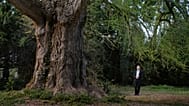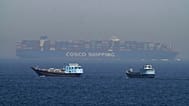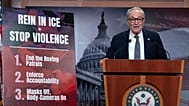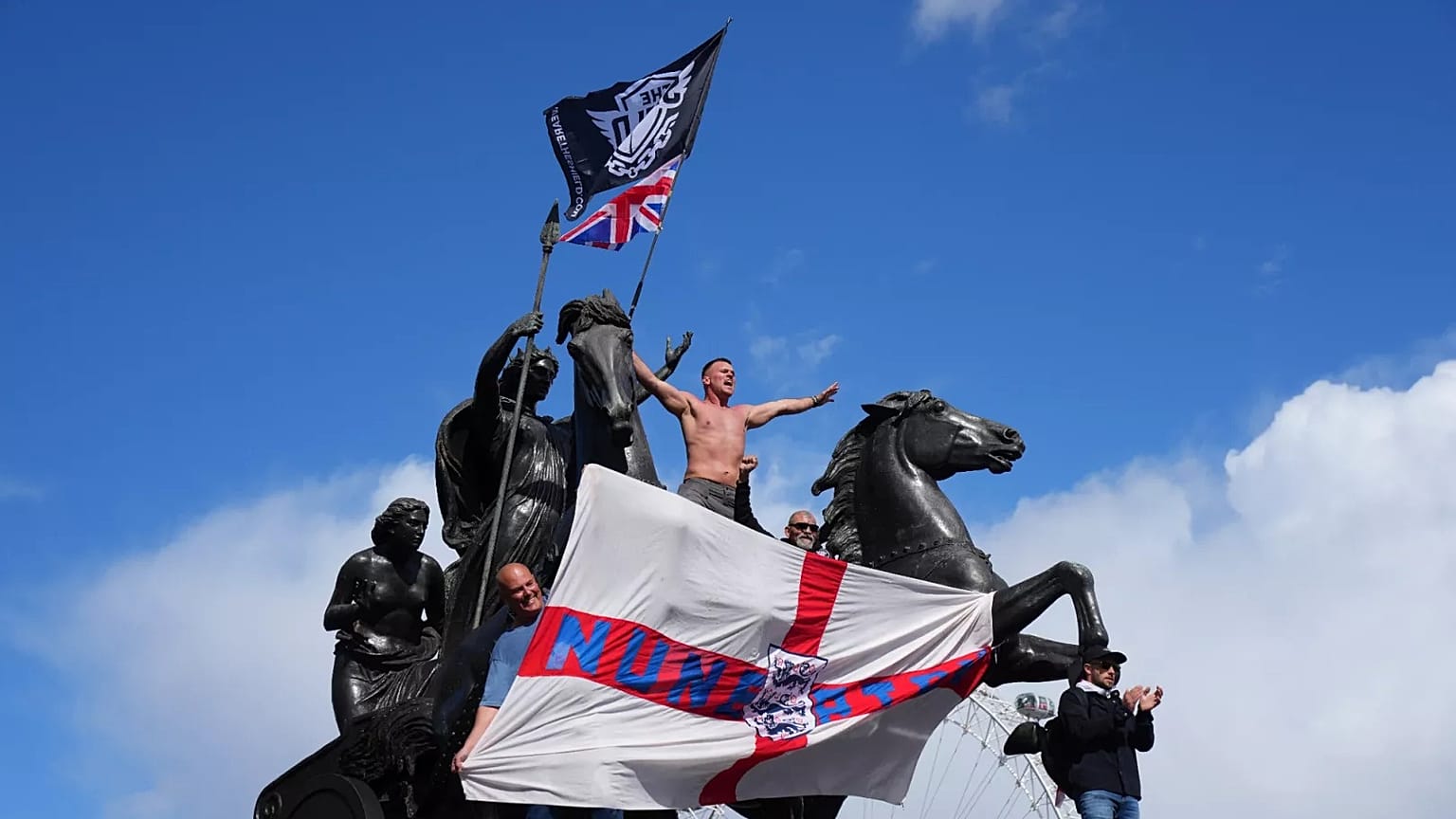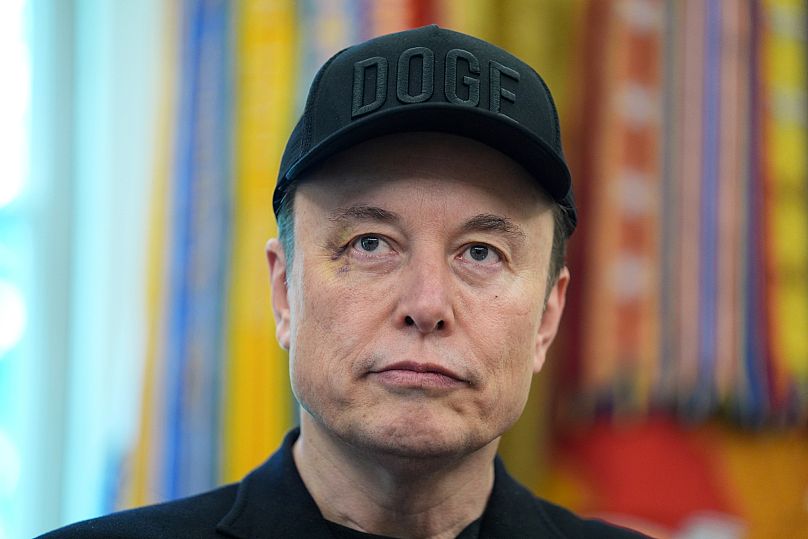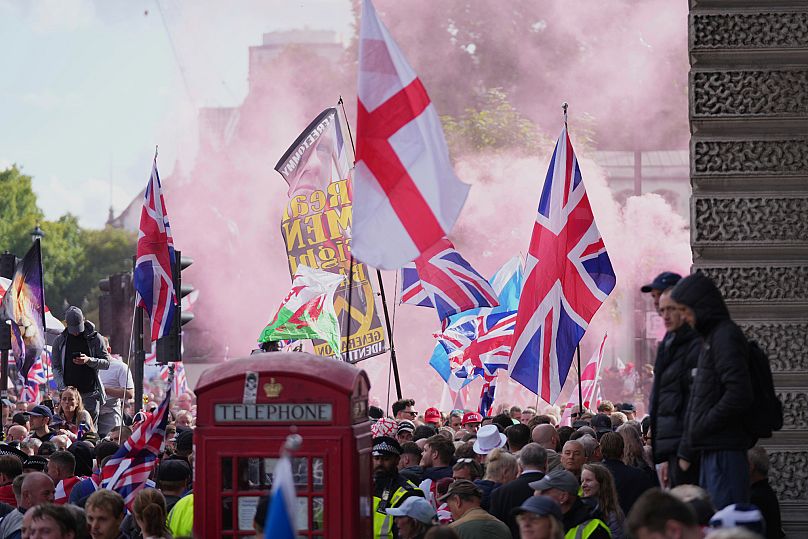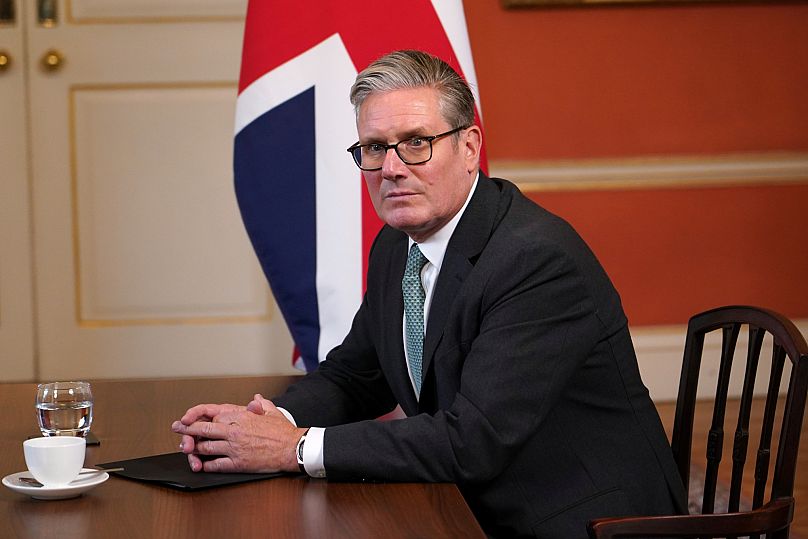The UK prime minister denounced violence on the fringes of Saturday's "Unite the Kingdom" demonstration in London organised by far-right campaigner Tommy Robinson.
UK Prime Minister Keir Starmer condemned "dangerous" comments by Elon Musk on Monday, after the X and Tesla owner told an anti-immigration rally in London that "violence is coming" to the UK and they must fight or die.
Addressing the demonstration by video link, Musk called for the dissolution of UK Parliament and an early election to remove Starmer's centre-left government.
He told protesters, "violence is coming to you," and "you either fight back or you die."
Starmer denounced violence on the fringes of Saturday's "Unite the Kingdom" demonstration in London organised by far-right campaigner Tommy Robinson.
Police said 26 officers were injured, four seriously, as protesters tried to breach lines separating them from a smaller anti-racist counter-demonstration.
Twenty-five people were arrested at the event and the Metropolitan Police said more arrests would follow.
Starmer's spokesperson Dave Pares said he didn't think "the British public will have any truck with that kind of language."
"The UK is a fair, tolerant and decent country, so the last thing that British people want is dangerous and inflammatory language which threatens violence and intimidation on our streets," Pares added.
Ed Davey, who leads the Liberal Democrats, the third-largest party in Parliament, urged Starmer and Conservative opposition leader Kemi Badenoch to join him in condemning Musk's attempt "to sow discord and incite violence on our streets" and interfere with British democracy.
They should "consider what sanctions Elon Musk should face as a consequence," Davey said.
Starmer's spokesperson said the government had no plans to speak to Musk about his comments and resisted calls to sanction him for the remarks.
The prime minister wrote on X that peaceful protest "is core to our country's values. But we will not stand for assaults on police officers doing their job or for people feeling intimidated on our streets because of their background or the colour of their skin."
This is not the first time Musk, a former ally of US President Donald Trump, has supported far-right figures in Europe, including Robinson and the Alternative for Germany (AfD) party.
The South African-born Musk is also a critic of attempts by the UK and other European governments to clamp down on harmful online content, something he argues restricts free speech.
Saturday's demonstration follows growing political concern about unauthorised immigration, especially the arrival of migrants across the English Channel in small boats.
More than 30,000 people have made the dangerous crossing from France so far this year despite efforts by authorities from Britain, France and other countries to crack down on the people-smuggling gangs behind the trips.
The use of hotels to accommodate asylum-seekers has become a major political issue in Britain, sparking dozens of small but heated protests over the summer, some of which turned violent.
Flying the flag
Many of the demonstrators in London waved the UK's Union Jack or the red and white St George's flag of England.
In recent weeks, the flags have proliferated on lampposts, motorway bridges and road intersections around the country as part of a seemingly grassroots campaign.
Red crosses have also been painted on buildings in what some see as an intimidating gesture aimed at ethnic minorities.
The St George's flag in particular is a symbol used to express patriotism and pride when supporting England’s sports teams, but has at times been used by anti-immigration protesters and the hard right.
The flag featured heavily at anti-asylum protests this summer, which were attended and in some cases organised by far-right activists.
"Flags can unite and divide as they are flown by people with different motives and meanings," said Sunder Katwala of British Future, a think tank that looks at issues including integration and national identity.
James Freeman, a senior lecturer in political history at the University of Bristol, said the use of flags "to intimidate or demark certain areas as being out of bounds" was a historical phenomenon, though the link between the St George's flag and the hard right is "relatively recent".
Starmer, who has expressed support for flying flags as symbols of national pride, wrote on X that "Britain is a nation proudly built on tolerance, diversity and respect."
"Our flag represents our diverse country and we will never surrender it to those that use it as a symbol of violence, fear and division," the UK prime minister concluded.


